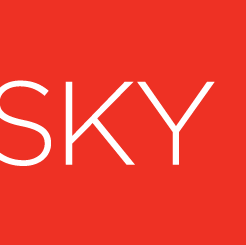More and more employers are valuing soft skills over hard skills. It’s important to seek out candidates who are technically capable, but hiring managers are equally interested in identifying candidates that are quick learners, natural leaders, creative problem solvers, critical thinkers, and team players.
What are soft skills?
The term “soft skills” gets thrown around a lot, but what exactly determines a “soft” vs. “hard” skill? Also, which soft skills are the most valuable?
In general, a soft skill is anything that isn’t technical knowledge. While forward-thinking businesses are looking to cut costs through automation, employers are seeking out soft skills because they can’t be automated or emulated by a machine. Soft skills are not quantifiable, and they’re used to address any issue in which there isn’t a right or wrong answer. Because of this, soft skills are sometimes also referred to as human or interpersonal skills. Some examples of soft skills include:
- Creative problem solving
- Storytelling
- Emotional intelligence and communication
- Building company culture
- Conflict resolution
- Scheduling
- Facilitating on-boarding
- Leadership
Not all soft skills are created equal—just like technical skills, the “right” soft skill will change according to position. Candidates for creative work will need to be team players who have good taste and problem-solving abilities. A manager should be able to facilitate good communication, build company culture, and mitigate conflict. Any remote employees will need to be self-starters and great communicators, while candidates that work on-site will need to know how to contribute to a shared work space.
How do I find candidates with good soft skills?
Your hiring criteria should reflect your needed soft skills. You should list the required soft skills for a position on your job listing—even before you list the technical requirements. Hiring managers sometimes don’t list soft skills, resulting in hires that are technically proficient but don’t gel well with the team.
It’s also hard to determine a candidate’s soft skills on a written application, as candidates tend not to list their soft skills on their resume, although that is starting to change. The best way to intuit a candidate’s soft skills are through an in-person interview. You should make sure to ask questions that will allow employees to demonstrate their soft skills, not just their technical capabilities. Some good questions to ask to learn about a prospective employee’s soft skills are:
- Can you describe a time when you had to solve an unconventional problem in a creative manner?
- How do you prioritize and break down tasks when you have multiple projects and deadlines?
- Do you feel comfortable giving and receiving constructive criticism?
- Describe the kind of work environment that you prefer and why.
- What does teamwork mean to you, and how have you shown it in the past?
Soft skills are essential to your business’ success. A candidate with good technical qualifications is a start, this can’t be the only criteria you use to determine if someone’s a good hire. It’s not just about knowledge, but about finding people who can collaborate with their team to solve complex problems. You want candidates whose values align with your company, so that they’ll go above and beyond expectations. This is true even in disciplines that require a lot of technical expertise, like engineering, law, and finance. By sourcing candidates based on their soft skills in addition to their hard skills, you’ll build a strong, adaptive workforce that can take your business to new heights.

